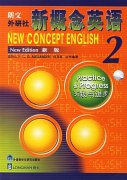Directions: For each blank in the following passage there are four words or phrases marked A, B, C and D. Fill in each blank with the word or phrase that best fits the context.
Napping for a while at daytime is a very smart and healthy move. The Mayo Clinic says naps
1 relaxation, better mood and alertness, and a sharper working 2 . A 2008 British study found that compared to getting more nighttime sleep, a mid-day nap was the best way to
3 the mid-afternoon sleepiness.
According to the Harvard Health Letter, several studies have shown that people 4 new information better when they take a nap shortly after learning it. And, most 5 , a 2007 study of nearly 24,000 Greek adults in the Archives of Internal Medicine found that people who napped
6 had a 37 percent reduced risk of dying from heart disease compared to people who didn’t nap.
Of course, napping isn’t 7 for everyone. If you’re suffering from inability to sleep, naps that are too long or taken too late in the day can 8 with your ability to fall or stay asleep at night.
But for most, naps can make you feel sharper and happier. Naps provide different benefits
9 on how long they are. A 20-minute nap will boost alertness and concentration; a 90-minute snooze(小睡)can 10 creativity.
According to prevention.com, you 11 a natural dip in body temperature between 1 p.m. and 3 p.m. A short nap at this time can boost alertness for several hours and, for most people, shouldn’t 12 being able to fall asleep at night.
Pick a dark, cozy place that’s not too warm or too chilly. Prevention.com 13 napping on the couch instead of in bed, so you’re less 14 to snooze for too long.
Surprisingly, the best place to take a nap may be a hammock(吊床)if you have one. A Swiss study 15 last year found that people fell asleep faster and had deeper sleep when they napped in a hammock than in a bed. That same rocking motion that puts babies to sleep works wonders for grown-ups, too.
1. A. relieve B. promote C. operate D. support
2. A. feeling B. frame C. sense D. mind
3. A. cope with B. put aside C. talk about D. carry upon
4. A. remark B. consider C. remember D. concern
5. A. reportedly B. unbelievably C. constantly D. frankly
6. A. regularly B. enormously C. heavily D. strongly
7. A. exact B. correct C. right D. accurate
8. A. connect B. deal C. compete D. interfere
9. A. focusing B. depending C. relying D. basing
10. A. enlarge B. engage C. enhance D. enroll
11. A. explore B. experience C. exercise D. implement
12. A. produce B. handle C. affect D. urge
13. A. postpones B. discourages C. acknowledges D. recommends
14. A. obliged B. tempted C. adopted D. attracted
15. A. pronounced B. published C. discovered D. cultivated
1. B 2. D 3. A 4. C 5. B 6. A 7. C 8. D 9. B 10. C
11. B 12. C 13. D 14. B 15. B








